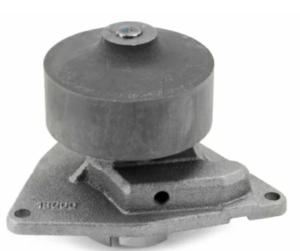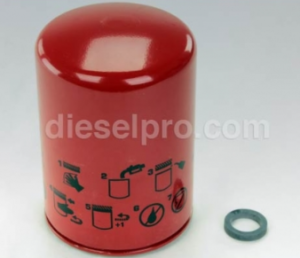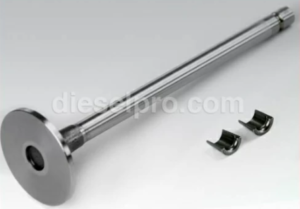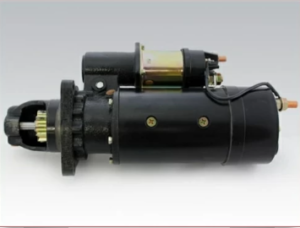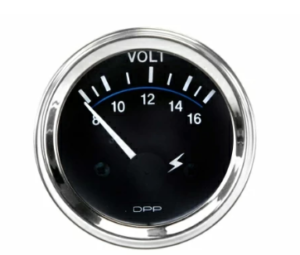February 27, 2025
Introduction
1. The Role of the Lubrication System
2. Oil Pump Operation and Servicing
2.1 How the Oil Pump Works
2.2 Signs of Oil Pump Failure
2.3 Servicing the Oil Pump
3. Oil Filter and Lubrication Maintenance
3.1 Importance of Regular Oil Changes
3.2 Choosing the Right Engine Oil
3.3 Replacing the Oil Filter
4. Identifying and Fixing Oil Leaks
4.1 Common Causes of Oil Leaks
4.2 How to Identify Oil Leaks
4.3 Fixing Oil Leaks
5. Preventative Maintenance Tips
Conclusion
Read More
February 27, 2025
Introduction
1. Importance of Maintaining Proper Cooling
1.1 The Role of the Cooling System in Engine Health
1.2 Signs of Cooling System Problems
2. Radiator and Coolant Maintenance
2.1 Radiator Maintenance and Inspection
2.2 Coolant Maintenance and Replacement
Coolant Change Intervals
Proper Coolant Mixture
3. Water Pump Inspection and Replacement
3.1 Signs of a Failing Water Pump
3.2 Water Pump Replacement Procedure
4. Common Cooling System Problems and Troubleshooting
Overheating Despite Coolant Being Full
Coolant Leaks Near the Engine
White Smoke from Exhaust with Coolant Loss
Coolant Turning Brown or Sludgy
Conclusion
Read More
February 27, 2025
Introduction
Long-Term Engine Storage Procedures
Key Considerations Before Storage
Step-by-Step Long-Term Storage Procedure
Preventing Corrosion and Damage During Downtime
Effects of Long-Term Inactivity on Engine Components
Component
Common Issues Due to Storage
Prevention Methods
Steps to Prevent Corrosion and Damage
Restarting Procedures After Storage
Step-by-Step Engine Restart Procedure
Preventative Maintenance After Storage
Conclusion
Read More
February 27, 2025
Introduction
Torque Settings for Bolts and Fasteners
The Importance of Proper Torque Settings
Component
Torque Specification
Notes
Best Practices for Torque Applications
Valve Clearance Adjustments
The Role of Valve Clearance Adjustments
Recommended Valve Lash Specifications
Step-by-Step Valve Clearance Adjustment Procedure
Common Mistakes to Avoid
Timing Settings and Proper Alignment
The Importance of Correct Timing
Timing Gear and Injector Pump Alignment
Step-by-Step Timing Adjustment Procedure
Common Timing Issues and Solutions
Best Practices for Setting Timing
Conclusion
Read More
February 27, 2025
Introduction
Understanding Fault Codes and Warnings
The Importance of Engine Fault Codes
How to Read Cummins Fault Codes
Common Cummins QSC 8.3 and QSL 9 Fault Codes and Their Meanings
Common Engine Problems and Solutions
1. Engine Won’t Start or Hard Starting
2. Engine Overheating
3. Excessive Black Smoke from Exhaust
4. White Smoke from Exhaust
5. Low Oil Pressure Warning
Using Diagnostic Tools for Troubleshooting
Essential Diagnostic Tools for Cummins QSC 8.3 and QSL 9 Engines
How to Use a Diagnostic Scanner to Identify Issues
Preventative Maintenance to Reduce Diagnostic Issues
Conclusion
Read More
February 27, 2025
Introduction
Battery Maintenance and Replacement
The Role of the Battery in the Electrical System
Signs of a Weak or Failing Battery
Battery Maintenance Best Practices
Replacing a Battery in Cummins QSC 8.3 and QSL 9 Engines
Alternator, Starter, and Wiring Checks
The Role of the Alternator
Signs of a Failing Alternator
How to Test and Maintain the Alternator
The Role of the Starter Motor
Signs of a Failing Starter
How to Inspect and Test the Starter
Wiring System Checks
Common Wiring Issues and How to Fix Them
Common Electrical Troubleshooting Techniques
Step 1: Check Battery Voltage and Connections
Step 2: Test the Alternator Charging System
Step 3: Inspect the Starter Motor
Step 4: Scan for Diagnostic Trouble Codes (DTCs)
Step 5: Inspect the Wiring and Fuses
Step 6: Verify Grounding Points
Step 7: Test Sensors and Relays
Preventative Electrical System Maintenance
Conclusion
Read More
Page 3 of 36«12345...102030...»Last »
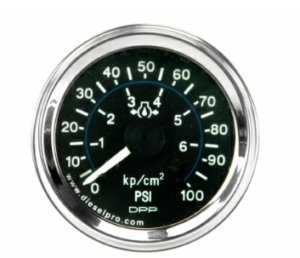



 Free US Calls: 1-888-433-4735
Free US Calls: 1-888-433-4735 International: 305-545-5588
International: 305-545-5588
